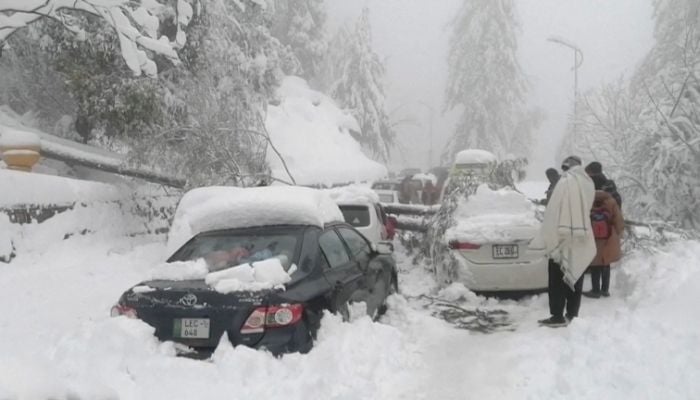
Rawalpindi district authorities have developed a plan to deal with any unanticipated incidents that may occur during the upcoming rain and snowfall spell in Murree after nearly two dozen lives were lost in the hill station last week.
According to a press release issued on Friday, Deputy Commissioner Muhammad Ali, while presiding over a meeting to review the preparations, stated that a contingency plan has been finalized in case of any unforeseen circumstances.
Despite the fact that natural disasters are out of our control, we can reduce the rate of damage by implementing disaster management measures, he said.
According to the plan, during the snowfall spell, two control rooms will be established, which will be staffed 24 hours a day to listen to citizen complaints and ensure that they are provided with the necessary assistance as well as comprehensive guidance.
The control room will be established at the Deputy Commissioner‘s Office in Rawalpindi as well as the Assistant Commissioner’s Office in Murree.
Focal persons from all concerned departments will carry out their duties at the nerve center.
Snow removal and traffic management have been made top priorities in the new strategy. In addition, entry into Murree will be strictly regulated during this period, with no more than 8,000 vehicles permitted to enter the city.
It is pertinent to note that last week, a deadly snowstorm wreaked havoc and killed more than 20 people in Murree.
Committee to probe Murree tragedy formed
Earlier this week, a committee to probe the Murree tragedy was finalized, with Chief Minister Punjab Usman Buzdar vowing “impartial action” against all those found negligent in their duties.
The committee had been tasked to ascertain which government departments were responsible for the crisis situation that unfolded in Murree.
The committee was formed to assess what measures were taken to control the influx of visitors and vehicles.
Furthermore, the committee planned to look into what precautionary measures were taken by institutions in light of the weather advisory issued by the Met Office.
It was also to determine whether a warning was run on media to dissuade people from traveling to the tourist destination.
The traffic control measures taken amid the snowstorm and after reports of the adverse weather conditions received, what safety measures were implemented, all were to be assessed by the committee and present in the report form in seven days.






